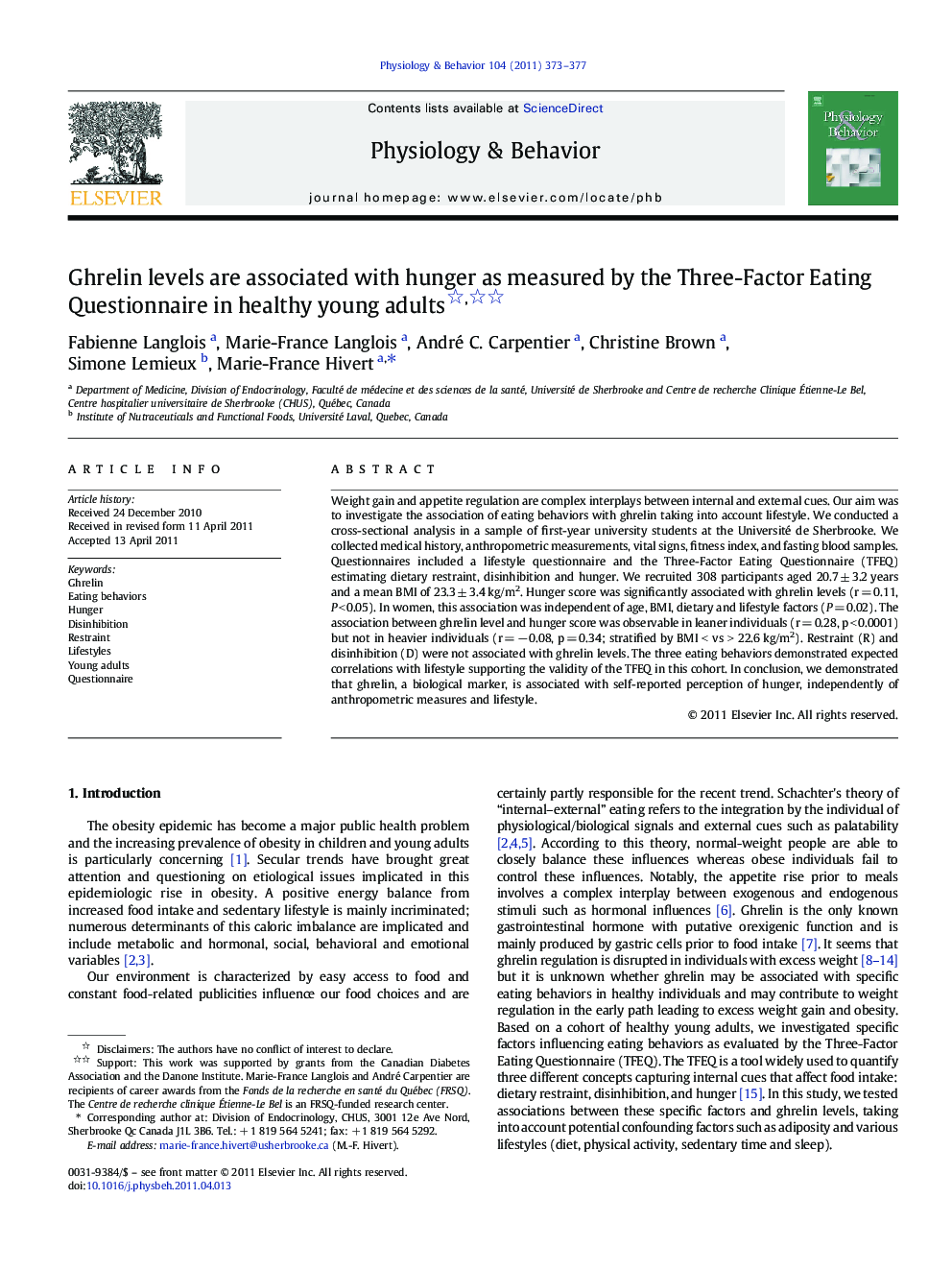| Article ID | Journal | Published Year | Pages | File Type |
|---|---|---|---|---|
| 5925488 | Physiology & Behavior | 2011 | 5 Pages |
Weight gain and appetite regulation are complex interplays between internal and external cues. Our aim was to investigate the association of eating behaviors with ghrelin taking into account lifestyle. We conducted a cross-sectional analysis in a sample of first-year university students at the Université de Sherbrooke. We collected medical history, anthropometric measurements, vital signs, fitness index, and fasting blood samples. Questionnaires included a lifestyle questionnaire and the Three-Factor Eating Questionnaire (TFEQ) estimating dietary restraint, disinhibition and hunger. We recruited 308 participants aged 20.7 ± 3.2 years and a mean BMI of 23.3 ± 3.4 kg/m2. Hunger score was significantly associated with ghrelin levels (r = 0.11, P < 0.05). In women, this association was independent of age, BMI, dietary and lifestyle factors (P = 0.02). The association between ghrelin level and hunger score was observable in leaner individuals (r = 0.28, p < 0.0001) but not in heavier individuals (r = â 0.08, p = 0.34; stratified by BMI < vs > 22.6 kg/m2). Restraint (R) and disinhibition (D) were not associated with ghrelin levels. The three eating behaviors demonstrated expected correlations with lifestyle supporting the validity of the TFEQ in this cohort. In conclusion, we demonstrated that ghrelin, a biological marker, is associated with self-reported perception of hunger, independently of anthropometric measures and lifestyle.
Research highlights⺠We studied the association between ghrelin and eating behaviors in young adults. ⺠We used the TFEQ to estimate dietary restraint, disinhibition and hunger. ⺠Higher ghrelin level was associated with higher hunger score. ⺠Association between ghrelin and hunger was stronger in women and in lean.
